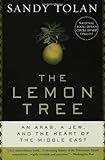From Review of Chrislam: How Missionaries are Promoting an Islamized Gospel:
Chrislam: How Missionaries are promoting an Islamized Gospel
Joshua Lingel, Jeff Morton & Bill Nikides, eds. i2 Ministries Publications, 344 pages, $25.
–Reviewed by Warren Larson, Former Director of the Zwemer Center, and Associate Professor of Muslim Studies, Columbia International University, South Carolina.
The best thing to be said about this book is that it addresses critical issues in mission to Muslims. Insider movement (IM) proponents have received ample press in the past (Mission Frontiers and IJFM) and this text deems it high time to present another perspective. It calls for careful exegesis (62-76) of passages like I Corinthians 9:19-22. It insists Muhammad was not a prophet in any sense of the term and the Qur’an is not divinely-inspired. It opposes removing familial language for God from Muslim-friendly translations (199-226), and though SIL and Wycliffe Bible Translators have issued new guidelines saying “Son of God” will be translated literally in most cases, sees the loophole large enough to justify many problematic “exceptions.” Many readers will resonate with such concerns but question the content and tone of this text.
Chrislam: How Missionaries are Promoting an Islamized Gospel consists of twenty-five chapters and is written by numerous authors. It contains a foreword, acknowledgements, preface, three appendices, bibliography, and an index. Material is divided up into six sections that deal with various subjects, including hermeneutics, translation, missiology, testimonies/interviews of former Muslims, and resources of IM websites, an index and references from both the Bible and the Qur’an.
On the positive side, sections one and five have the most value: The first section quotes IM proponents extensively, however taken out of context, may give impressions never intended by the authors. Section five gives Muslim converts (mostly Bengali) a voice in expressing strong opposition to IM; however other Bengalis could be called upon for the exact opposite view.
On the negative side, the Preface (iii-iv) is especially troubling: It contains inaccuracies, misperceptions and unbiblical attitudes. A statement in the second paragraph, “… [W]hat is at stake is not our personal relationships with brothers and sisters” suggests it does not matter what we say about fellow-believers, as long as we tell what we think is the truth. A comment in the third paragraph makes a generalization about all IM ministries: “… [N]o churches are planted …” Such sweeping statements set the tone for what is to follow. This book is reactionary, primarily a work of extremes, including an alarmist and inflammatory title. Nor is it put together well: One chapter (100-115) argues that Christians should treat Islam like an Old Testament ban, because after all, it is a pagan religion. And Samuel Zwemer’s article (306-308) on secret believers is misplaced; a more fitting quote would have been: “We must become Moslems to the Moslem if we would gain them for Christ” (The Moslem Christ, 183).
This book demonstrates that evangelical Christians have failed to settle an important question peacefully: To what extent can one remain culturally and religiously “Muslim” while seeking to follow Jesus? The opinion of this reviewer is that differences of opinion on such a controversial topic can only be clarified through careful scholarship, mutual respect and face-to-face dialog.






